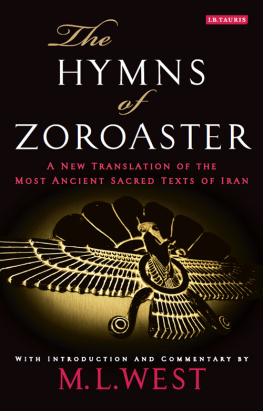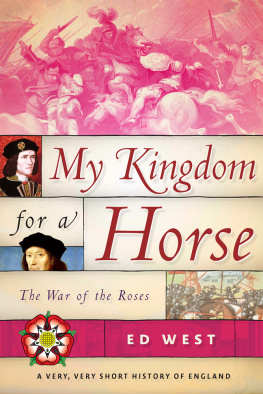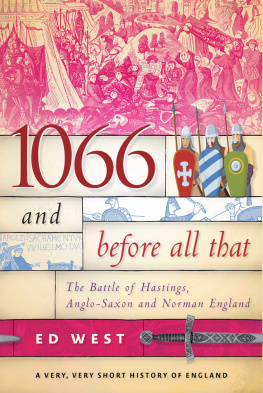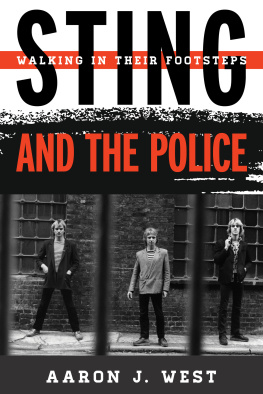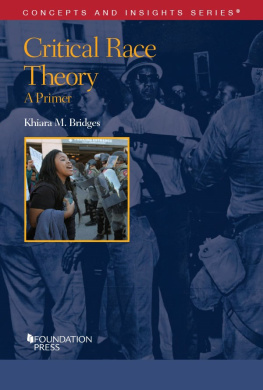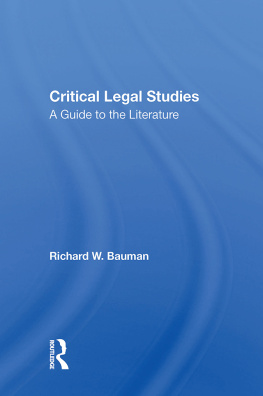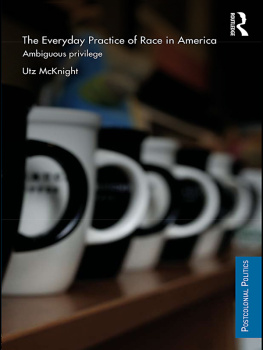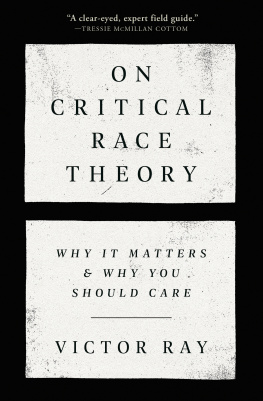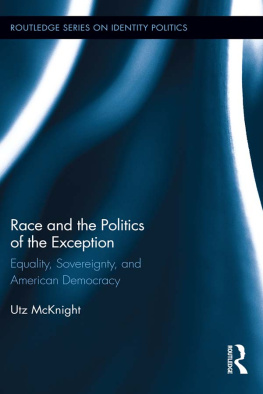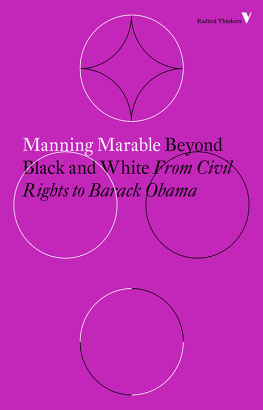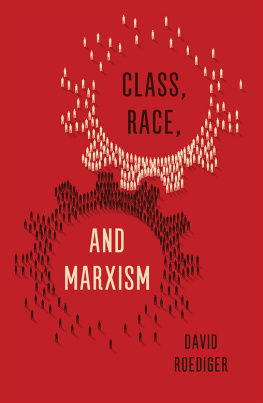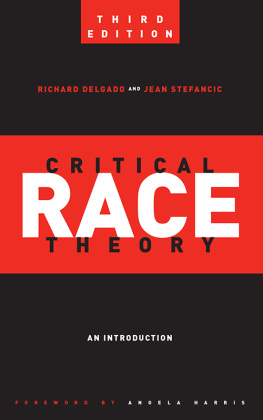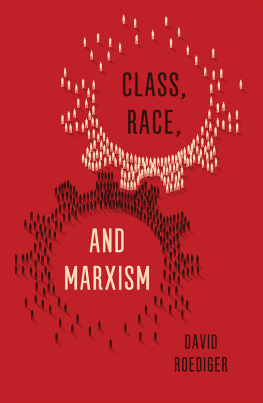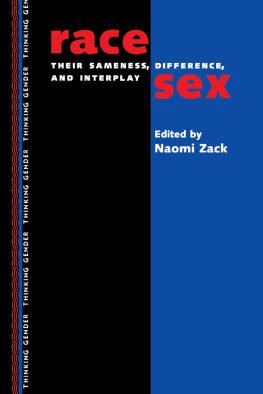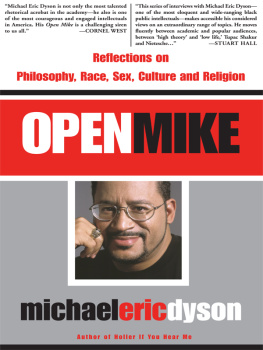
Keeping Faith
The sheer range of Wests interests and insights is staggering and exemplary: he appears equally comfortable writing about literature, ethics, art, jurisprudence, religion, and popular-cultural forms.
Artforum

Routledge Classics contains the very best of Routledge publishing over the past century or so, books that have, by popular consent, become established as classics in their field. Drawing on a fantastic heritage of innovative writing published by Routledge and its associated imprints, this series makes available in attractive, affordable form some of the most important works of modern times.
For a complete list of titles visit
www.routledge.com/classics
Cornel
West
Keeping Faith
Philosophy and race in America

First published 1993
by Routledge
First published in Routledge Classics 2009
by Routledge
270 Madison Ave, New York, NY 10016
Simultaneously published in the UK
by Routledge
2 Park Square, Milton Park, Abingdon, Oxon OX14 4RN
Routledge is an imprint of the Taylor & Francis Group, an informa business
1993, 2009 Cornel West
Typeset in Joanna by RefineCatch Limited, Bungay, Suffolk
Printed and bound in Great Britain by
TJ International Ltd, Padstow, Cornwall
All rights reserved. No part of this book may be reprinted
or reproduced or utilized in any form or by any electronic,
mechanical, or other means, now known or hereafter
invented, including photocopying and recording, or in
any information storage or retrieval system, without
permission in writing from the publishers.
Library of Congress Cataloging in Publication Data
A catalog record for this book has been requested
British Library Cataloguing in Publication Data
A catalogue record for this book is available from the British Library
ISBN10: 0415964814
ISBN13: 9780415964814
To the love of my life,
my precious wife
Elleni Gebre Amlak
heir of a great family and civilization of faith
and harbinger of hope to come
CONTENTS
PART III Law and Culture
PREFACE
The Difficulty of Keeping Faith
IN ETHIOPIA
As I sit and watch the sun rise over the mountains of Addis Ababa, Ethiopia, my mind recalls the powerfully moving ceremony of two days past a ceremony in which my loving mother (I reject the term in-law), Harigewain Mola, transferred her house to my wife Elleni and me.
This extraordinary woman was born into one of the great families of Ethiopia. She is a direct descendant of Bulo, leader of the Oromo people, who wedded the sister of Menelik II, the nineteenth-century creator of modern Ethiopia; three days before the Italian invasion in 1935, she married into another grand Amhara family, Gebre Amlak. She owned thousands of acres of land (estimated to include significant portions of Addis Ababa itself), lost all but one house through the uncompensated confiscation of lands and properties under the communist regime, and now lives with dignity and Christian humility in one of the most culturally rich yet economically impoverished countries of the late twentieth century.
The ceremony lasted five tearful and rip-roaring hours. With my brothers and sisters, Gasha Milliard, Sewasew, Sirak, Tselat and Elleni, we shared personal stories interwoven with national narratives that highlighted the courage and integrity as well as the failures and farewells of the matriarchs and patriarchs of my Ethiopian lineage. We concluded by kissing the feet of our beloved mother, whose unselfish life of giving and living embraces both loss and love.
This ceremony, with its outpouring of deep feelings, echoes my wedding of exactly one year earlier. The wedding, organized by a committee of leading Ethiopian citizens, was a unique religious ceremony in the grand Coptic cathedral known as Haile Selassie Church; two thousand people attended the celebration at the Addis Ababa Hilton. But if the event is etched in the recent memory of many Ethiopians it is because of the incredible depths of joy and ecstasy, of love and happiness experienced by so many from sunrise to curfew. The fact that my father, mother and only brother (my best man) made the trip from California to Addis Ababa indeed added to these depths as did my new Ethiopian name, Fikre Selassie.
My initiation into Ethiopian life raises urgent issues of inheritance and rootlessness, tradition and homelessness. What is my relation to my African heritage and Ethiopian house? How do I understand my African American tradition and sense of black homelessness in America? Who is the I or me that has emerged out of a particular black family, church and neighborhood, a white academy, a multicultural American mass communication network, and a set of progressive political organizations? And, to put it bluntly, why do I have the urge to leave America and live in Ethiopia? Is this the urge of an migr, an expatriate or an exile?
IN AMERICA
As I reflect on these complex questions, I realize that they sit at the core of my intellectual vocation and existential engagement: a profound commitment to what I call a prophetic vision and practice primarily based on a distinctly black tragic sense of life. On the one hand, this commitment looks the inescapable facts of death, disease and despair in the face and affirms moral agency and action in our everyday, commonplace circumstances. On the other hand, it is rooted in a certain view of the Christian tradition that is so skeptical about our capacity to know the ultimate truths about our existence that leaps of faith are promoted and enacted because they make sense out of our seemingly absurd conditions. The tragicomic vision of Anton Chekhov the most illuminating and empowering vision put forward in our ghastly century encourages me to put a premium on garnering resources from a vanishing past in a decadent present in order to keep alive a tempered hope for the future, a hope against hope that human empathy and compassion may survive against the onslaught of human barbarity, brutality and bestiality. It is the love ethic of Christian faith the most absurd and alluring mode of being in the world that enables me to live a life of hope against hope without succumbing to a warranted yet paralyzing pessimism or to an understandable yet miserable misanthropy.
How then does a black philosopher keep faith as he, or she, focuses on the pain and paranoia in Americas chocolate cities and on Africas sense of impending catastrophe? What are the sources for brave thought and courageous action in this frightening moment of global cynicism and fatalism? My feeble attempt to put forward a prophetic criticism for our times is a direct response to these grave questions.
Prophetic criticism rests on what I understand to be the best of Euro-American modernity the existential imperative to institutionalize critiques of illegitimate authority and arbitrary uses of power; a bestowal of dignity, grandeur and tragedy on the ordinary lives of everyday people; and an experimental form of life that highlights curiosity, wonder, contingency, adventure, danger and, most importantly, improvisation. These elements constitute a democratic mode of being in the world inseparable from democratic ways of life and ways of struggle. Prophetic criticism is first and foremost an intellectual inquiry constitutive of existential democracy a self-critical and self-corrective enterprise of human sense-making for the preserving and expanding of human empathy and compassion. Chekhovs drama of the everyday and Kierkegaards unique Christian perspective, are exemplary European expressions of the personal aspects of existential democracy. John Deweys pragmatism (and democratic socialism) is a leading American example of the political aspects of existential democracy.
Next page

